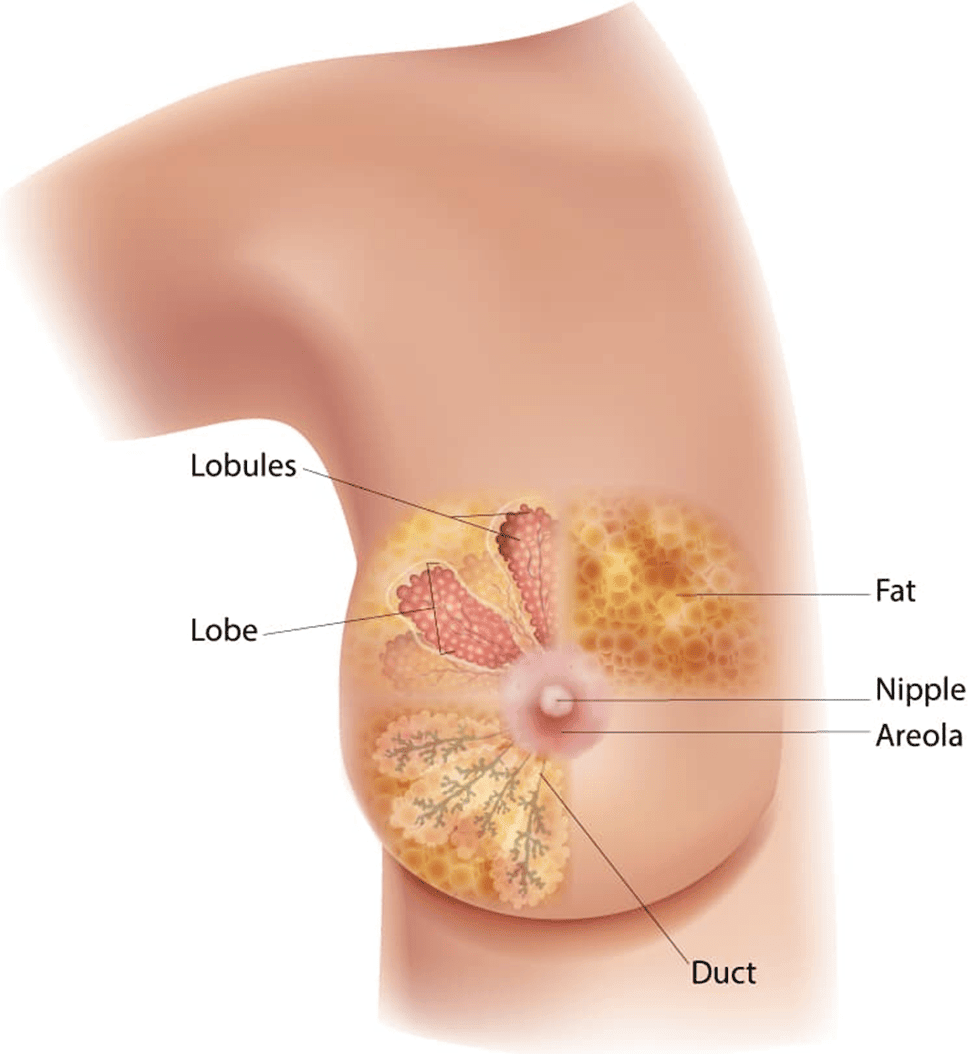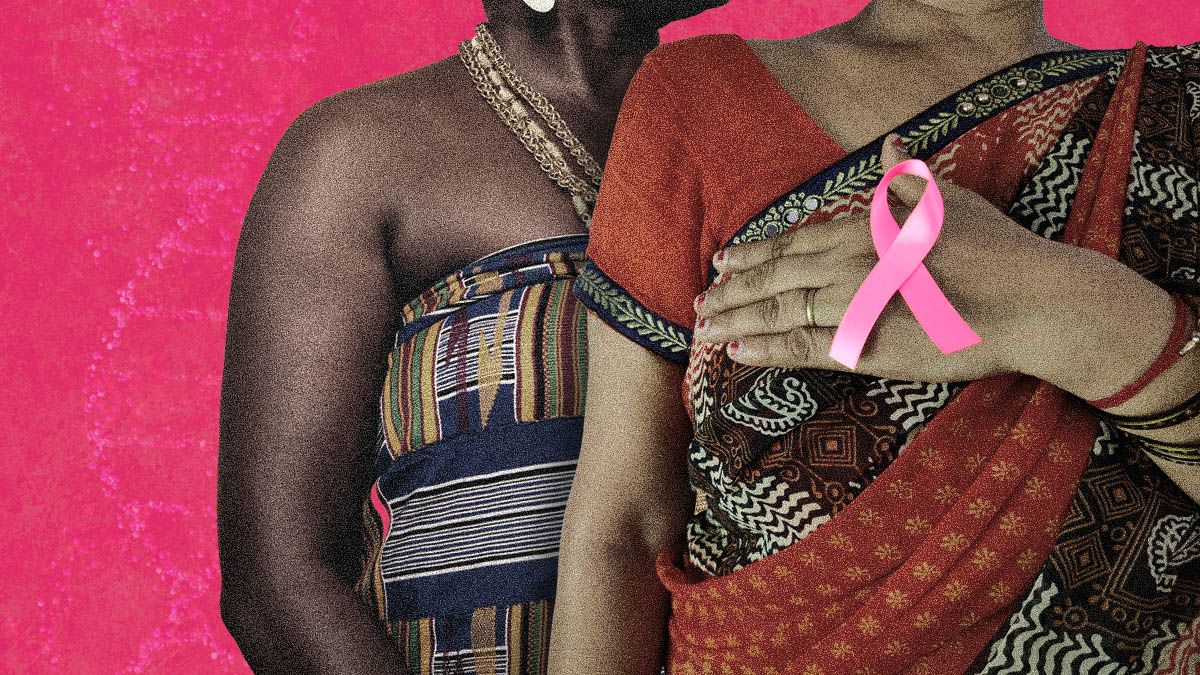Breast cancer is rising rapidly in Tanzania, with cases expected to increase by 82% by 2030. Most women are diagnosed at late stages due to limited screening and treatment access, leading to high mortality rates. Experts stress that early detection must go hand in hand with personalized, multidisciplinary care and public education to improve survival rates and make cancer treatment a national health and economic priority.

The official breast cancer awareness logo. Photo source: (Bloom OBGYN)
Breast cancer awareness month is held throughout the month of October every year. It is an annual international health campaign organized by major breast cancer charities all over the world to increase awareness of the disease and raise funds for research into its cause, prevention, diagnosis, treatment, and cure.
Breast Cancer is the most common cancer in women worldwide. In high income countries, programs that focus on breast cancer have been huge compared to other parts of the world. Efforts to create visibility in public health and advocacy groups have made breast cancer screening programs and education campaigns successful. Sadly it’s not the same with low and middle income countries (LMICs).
The overall mortality is on the rise. Breast cancer is the most common cause of cancer deaths among women. To combat this, and other cancers, Tanzania has developed guidelines for cancer control and has made efforts to equip major specialty hospitals with diagnostic tools and expand oncology departments.
Understanding Breast Cancer
Breast cancer is a disease in which cells in the breast grow out of control. There are different kinds of breast cancer. The difference depends on the kind of cells in the breast that turn into cancer. Most breast cancers begin in the ducts or lobules. The breast cancer then spreads outside the breast through blood vessels and lymph vessels. When breast cancer spreads to other parts of the body, it is said to have metastasized. There are various types of breast cancers, but the most common ones are the invasive ductal carcinoma and the invasive lobular carcinoma.
Invasive ductal carcinoma is the type of breast cancer where cancer cells begin in the ducts and then grow outside the ducts into other parts of the breast tissue. Invasive cancer cells can also spread or metastasize to other parts of the body. On the other hand the Invasive lobular carcinoma cancer is the type of breast cancer where the cancer cells begin in the lobules and then spread to the breast tissues that are close by. These invasive cancer cells can spread to other parts of the body as well.

The breast anatomy showcasing the parts most susceptible to develop cancer cells. (Photo source: CDC)
Rising Projected Rates
In 2020, there were 2.3 million women diagnosed with breast cancer and 685,000 deaths globally. By the end of 2020, there were 7.8 million women alive who were diagnosed with breast cancer in the past 5 years, making it the world's most prevalent cancer.
There are certain factors that increase the risk of breast cancer including increasing age, obesity, family history of breast cancer, harmful use of alcohol, history of radiation exposure, reproductive history (the age menstrual periods began and the age of the first pregnancy), tobacco use and postmenopausal hormone therapy. Approximately half of breast cancers develop in women who have no identifiable breast cancer risk factor other than their gender (female) and age (over 40 years).
In Tanzania, breast cancer is the second most common cancer representing 14.4% of new cancers and is the second leading cause of cancer mortality among women. The number of new breast cancer cases is projected to increase by 82 % by 2030. The projections for breast cancer deaths follow the same pattern, with an increase of 80% in breast cancer deaths by 2030.

Approximately half of breast cancers develop in women who have no identifiable breast cancer risk factor other than their gender than gender and age. Source: Cancer Research UK
In Tanzania, approximately 80% of women are diagnosed with advanced stage III or IV breast cancer due to limited availability of screening programs, late presentation, and poor access to treatments such as chemotherapy, surgery, and radiation therapy. The 80% of those diagnosed with breast cancer in Tanzania correlates to the other 80% of women from high income countries who are cured through effective early diagnosis and treatment programs. But data from Tanzania show that at least 50% of women diagnosed in this country die from their breast cancer. This means that due to less effective treatments, the outcomes are poor, which leads to a higher morbidity and mortality rate.
Bugando Medical Centre (BMC), a private-public hospital in Tanzania, is one of four tertiary referral hospitals, and one of only three that provides comprehensive cancer care. It serves a population of fourteen million in the Lake Region of Tanzania, where there are limited private facilities that provide diagnostic or treatment services for cancer.
Prevention can help reduce the devastating effects of breast cancer in low-income countries, but early detection of this malignancy remains the cornerstone in breast cancer control, improving both the outcome and survival.
Key Challenges
The National breast cancer awareness month was introduced to emphasize the efforts to create ways to battle and alleviate breast cancer. As part of those efforts, the Tanzanian government is implementing a project worth 38 billion Tanzanian shillings (US$16.5 million) to help with creating awareness to the public as well as investing in hospitals to promote earlier detection of breast cancer patients.
Cancer is a serious public health problem in Tanzania that requires early detection, screening, treatment, and palliative care. Currently, only 10% of cancer patients reach hospitals. Health stakeholders are working to increase the rate to at least 20%, thus reducing the rate of patients who present themselves when it is too late.
Multidisciplinary and Personalized Care
The future of breast cancer treatments and its success will not only depend on financial investments, but on focusing on multidisciplinary approaches. Cancer care is complex and involves multiple specialties. Unfortunately, in many parts of Africa, patients used to receive care based on whichever specialist they will see first. For instance, if a patient was recommended to a surgeon first, they would blink twice and find themselves on an operating table. If they saw the oncologist first, they will most likely receive chemotherapy treatment.
The focus on personalized care for each patient should be taken more seriously. This involves determining the type of breast cancer- including the unique tumor characteristics, patients’ age, co-morbidities, and preferences. We need a multidisciplinary approach where we bring together all these skilled clinicians to create the best treatment plan for each patient.

Personalized care will not only ensure a higher chance of survival but also reduce the anxieties and stress that comes with treatment for the patient. (Photo source:AKDN)
It is essential to foster shared decision-making with the patient. A well-informed patient whose wishes have been acknowledged and incorporated into the treatment plan is decisive to the overall treatment journey. With it, an understanding must be provided around what to anticipate in order to reduce distress and uncertainty and to encourage adherence to therapies.
Building a Future of Awareness and Prevention
Public education is another important factor to consider for better future outcomes. This includes for both the health care teams and the general public. It is important to train the next generation of healthcare workers to recognize the signs and symptoms of cancer, particularly the primary healthcare providers who are the gateway to accessing care. Educating the public is an important aspect since at least 30-50 percent of cancers are preventable through simple diet and exercise measures.
Cancer in Eastern Africa generally affects people in their prime years of productivity, and it is much less costly when treated early. Cancer health care should be viewed as an economic investment! There’s a key role for workforce advocacy as well as the public in general to collectively push for change in whatever sphere we’re in, whether at clinic or policy level, that will result in better outcomes for our patients, saving as much lives as possible.
